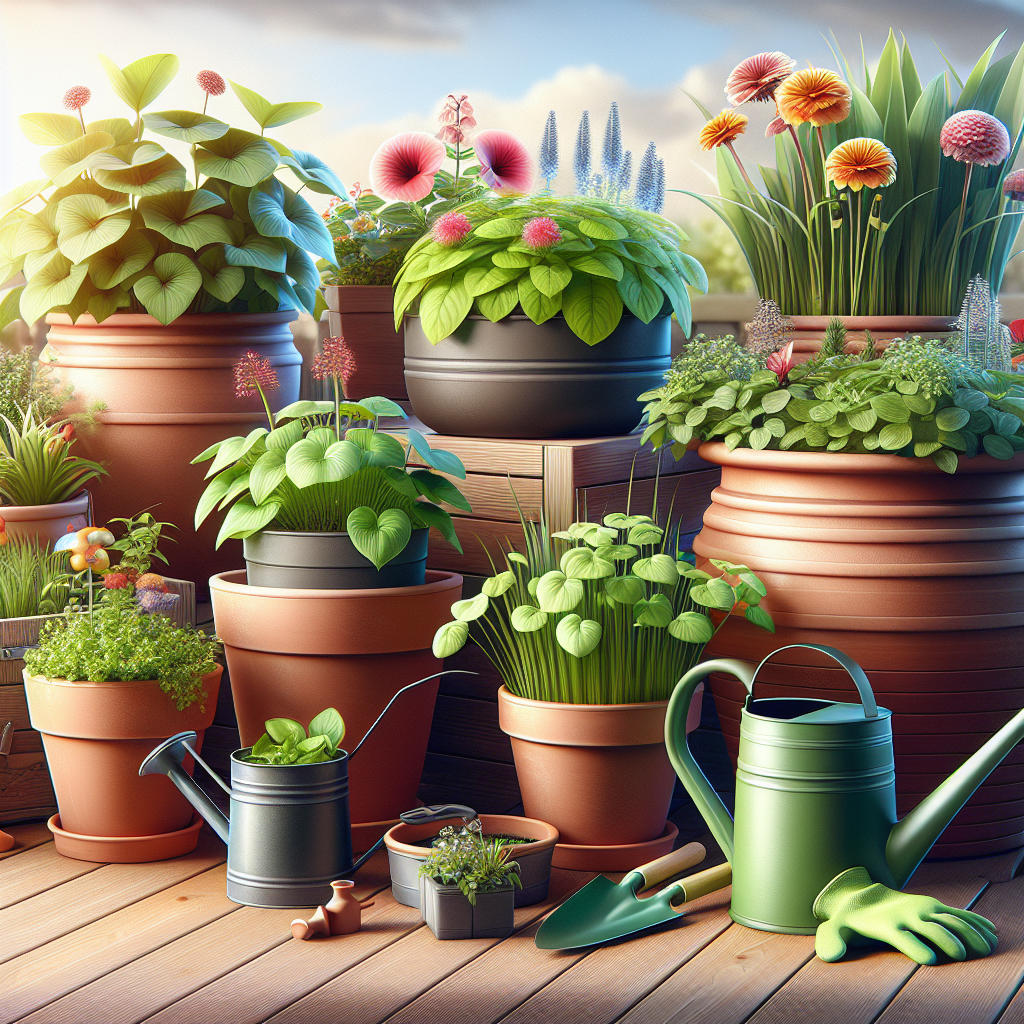Container gardening is a popular and practical way to add greenery and beauty to your home, even if you don’t have a yard or garden space. Whether you have a small balcony, patio, or windowsill, container gardening allows you to grow plants in pots, planters, or other containers that can be easily moved around and rearranged to suit your needs. Here are some tips for successful container gardening:
1. Choose the right container: When it comes to container gardening, the choice of containers is crucial. Make sure the container has enough drainage holes at the bottom to prevent water from pooling and causing root rot. Also, choose a container that is large enough to accommodate the roots of the plants you want to grow.
2. Use good quality soil: The soil in your containers should be rich in nutrients and well-draining to ensure healthy plant growth. You can either use pre-packaged potting mix or create your own by mixing equal parts of peat moss, perlite, and vermiculite.
3. Choose the right plants: Not all plants are suitable for container gardening. When selecting plants for your containers, consider factors such as the amount of sunlight they need, their size at maturity, and their water requirements. Some popular choices for container gardening include herbs, flowers, vegetables like tomatoes and peppers, and ornamental grasses.
4. Water regularly: Container-grown plants tend to dry out more quickly than those grown in the ground because their roots have limited space to access water. Make sure you water your containers regularly but avoid overwatering as this can lead to root rot.
5. Fertilize regularly: Container-grown plants need regular feeding as nutrients in the soil can get depleted quickly. Use a balanced liquid fertilizer diluted according to the manufacturer’s instructions every 2-4 weeks during the growing season.
6. Provide adequate sunlight: Most plants require at least 6-8 hours of sunlight per day to thrive. Place your containers in a sunny spot where they can receive enough sunlight throughout the day.
7. Prune and deadhead regularly: To encourage new growth and flowering, prune back any dead or yellowing foliage and deadhead spent flowers regularly.
8. Protect against pests: Container-grown plants are more susceptible to pests such as aphids, spider mites, and mealybugs than those grown in the ground. Keep an eye out for any signs of pest infestation and take prompt action using organic pest control methods if needed.
9. Rotate containers periodically: To prevent lopsided growth and ensure even sunlight exposure on all sides of your plants, rotate your containers every few weeks.
10. Consider companion planting: Some plants benefit from being grown together as they help each other thrive by repelling pests or attracting beneficial insects. Research companion planting combinations that work well together in containers.
In conclusion…Container gardening is a versatile and enjoyable way to bring nature into your home regardless of available outdoor space constraints by following these tips for successful container gardening you can enjoy beautiful blooms, fresh herbs or homegrown vegetables throughout the year.”













